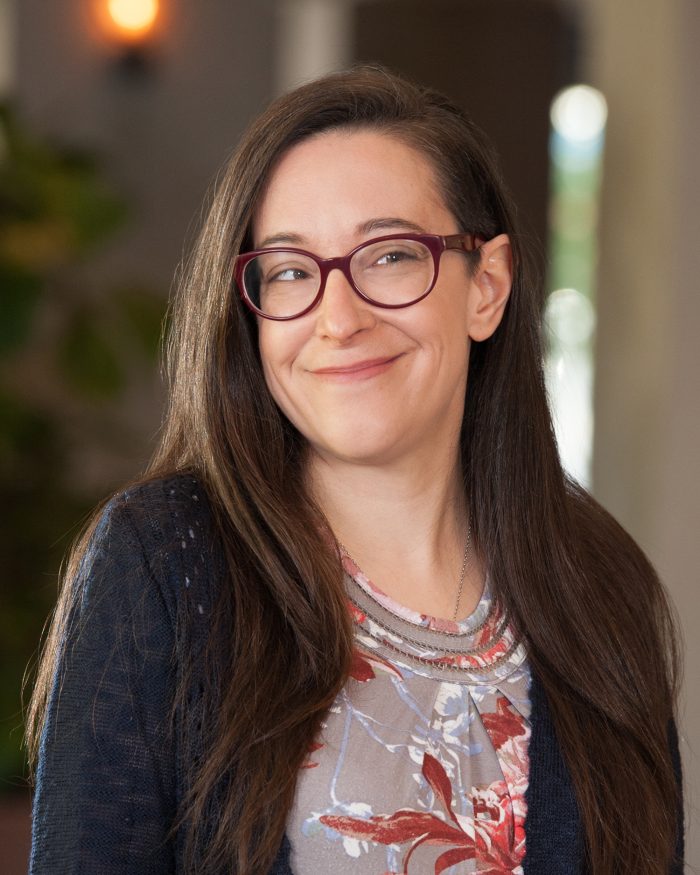ACLS Community Message for June 2024

The Mellon Foundation established the Mellon Mays Undergraduate Fellowship (MMUF) program in 1988 “to address the barriers that result in the problem of underrepresentation in the faculty ranks of higher education.” Since its founding over 35 years ago, the program, which identifies and supports undergraduate students who might go on to seek a humanities PhD, has grown from an initial cohort of eight participating colleges and universities to 44 institutions and three consortia across the country. Under the leadership of dedicated faculty and administrative campus coordinators at these institutions, to date over 1,100 MMUF fellows have been awarded PhDs, and the program supports approximately 500 undergraduates each year through cohort-building, research support, mentoring, summer programs, and more.
For the past 10 years, ACLS has carried out many of the operational and reporting functions that undergird this growing network of institutions and fellows. In our early work supporting the program, ACLS helped facilitate and improve the complex process by which member institutions both reported to the Mellon Foundation on their activities and requested renewal funds. That role has taken a significant leap forward over time as we’ve overhauled and streamlined the entire annual reporting, renewal, and regranting process and timeline. When the 2024 grant renewal cycle concludes next month, the total of all annual MMUF grants for the 2024-25 program year will reach approximately $8 million. To effectively execute this significant effort, we work side-by-side with our colleagues the Foundation and have developed a strong network of relationships with campus coordinators and program teams.
Why do we do this? The first, and perhaps most obvious, answer is that we believe wholeheartedly in the importance of this work.
MMUF’s mission to encourage fuller representation in the faculty across higher education has never been more important and embodies our own constitutional mission at ACLS to advance humanistic studies in all fields of the humanities and social sciences. Advancing humanistic studies is not just about scholarship itself, but also about supporting the scholars who produce it.
Our engagement with the MMUF program has been an invaluable, on-the-ground opportunity to witness the formation of scholars in their undergraduate years and to participate in the long-term evolution of humanistic disciplines. These are scholars with whom we often intersect later in their career trajectories, as fellows, peer-reviewers, academic leaders, and even as two of our current ACLS staff members!
Our engagement with the MMUF program over the years has been an invaluable, on-the-ground opportunity to witness the formation of scholars in their undergraduate years and to participate in the long-term evolution of humanistic disciplines.
The second reason we do this work is equally important: Our long track record at ACLS of successfully administering our own fellowship and grant competitions and the accompanying detail-oriented processes of peer-review, award administration and the like, coupled with the trusted relationships that we’ve established within the higher education landscape, has enabled us to take big ideas like MMUF and turn them into processes and systems that empower humanistic scholars and facilitate critical scholarship.
A lot of the day-to-day work here at ACLS is largely process-based and squarely behind the scenes, as much of my own work has been during my 20-year career at ACLS. The care with which we approach these critical administrative components is essential to ensuring that the programs we run and support are sustainable and can make an impact.
MMUF is a great example of this. Over the past several years, we’ve transformed the ACLS MMUF online portal—the interface through which campus coordinators report on their activities and spending over the past year and budget for the next—into an easy-to-use, dynamic system that collects critical program data and allows us to easily standardize, synthesize, and analyze it. Changing the wording of a question in a narrative report or altering the way that institutions break down their proposed spending in a particular budget category can open up a world of possibilities for understanding how a particular program element is working, both at the institutional level and across the entire program.
ACLS is committed to improving practices and processes in higher education and engaging in efforts that uplift humanistic scholars and scholarship. We are proud to play a part in one of these efforts through MMUF, supporting this 35-year initiative that significantly contributes to the growth of the humanities professoriate.
Kelly Buttermore
ACLS Chief of Staff
Kelly Buttermore is the ACLS Chief of Staff. Working closely with the president, vice president, and senior staff, she serves as a strategic thought partner, translating ACLS goals and priorities into tangible activities, workflows, and timelines. Kelly also leads administration of the Mellon Mays Undergraduate Fellowships, partnering closely with staff at the Mellon Foundation in this effort. Prior to assuming this position in January 2020, Kelly worked in a variety of roles at ACLS, most recently as grants officer and budget analyst.

